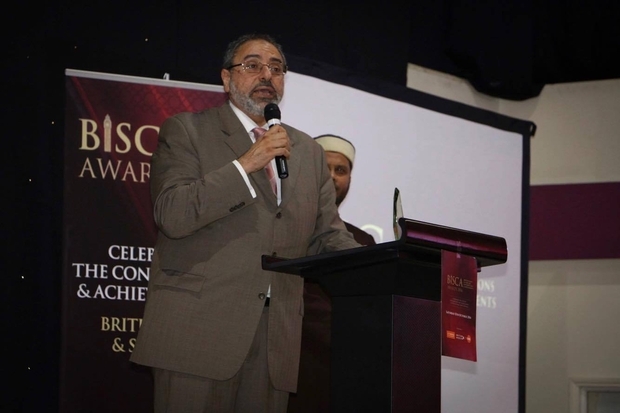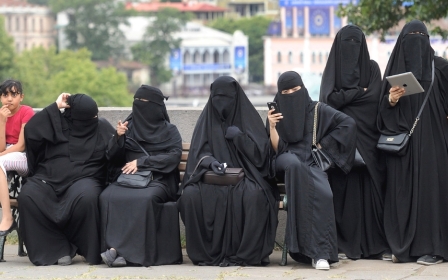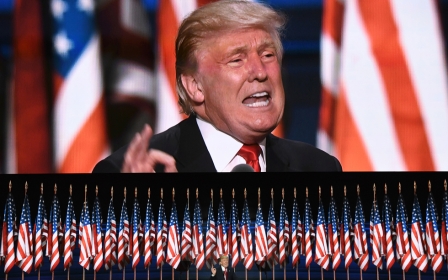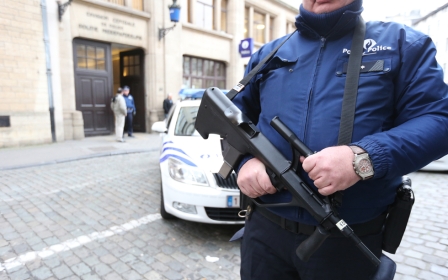Fadel Soliman: Tackling radical misconceptions about Islam
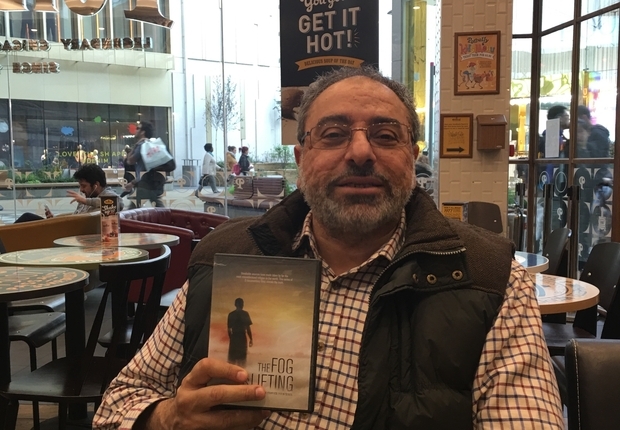
LONDON - “I am a survivor of 9/11,” says world-renowned film maker and speaker on Islam, Fadel Soliman. On the morning of 11 September 2001, Soliman was representing the World Assembly of Muslim Youth (WAMY) at the UN and was due to attend a conference for NGOs in the Department of Public Information (DPI) being held in Manhattan on that day.
“That morning, I had three hours before I needed to be at my conference, so I decided to do a bit of sightseeing. At 8am on the 11th of September I was trying to stop a taxi to take me and two colleagues to the World Trade Centre. No taxi stopped for half an hour.” Later Soliman found out that the first attack on the Twin Towers took place at 8.45am.
“I was quite frustrated at the time, not realising that God was saving our lives. That moment was a turning point for me. I learned how to be content. We do not know what is good for us, nor what is bad, we can only accept. That is contentment, and it’s a more stable feeling than happiness. This acceptance, is belief in fate and destiny, put simply.”
In 2001, Soliman had travelled to the US where he was introduced to Dawah, an Arabic term meaning "inviting people to learn about Islam". Soliman was inspired by the work of some of the best contributors to Islamic knowledge in America, in particular, Dr Jamal Badawi and Yusuf Estes, and subsequently began his Islamic awareness activities in the US.
He spoke on TV shows, National Public Radio, addressed non-Muslims in churches and universities and within a year, became the host of TV programmeThe Islamic Show as well as a weekly radio show called Let the Quran Speak, both based in Washington. Not long afterwards, Soliman became the Muslim chaplain of the American University in Washington DC.
New MEE newsletter: Jerusalem Dispatch
Sign up to get the latest insights and analysis on Israel-Palestine, alongside Turkey Unpacked and other MEE newsletters
Soliman is known worldwide for his work in promoting an accurate understanding of Islam and refuting its misconceptions. Through his organisation The Bridges Foundation Soliman has been able to present Islam to more than 65,000 people in 25 different countries by working with religious bodies, educational institutions and governmental departments. Soliman has spoken in many churches and colleges - including Hong Kong, Colombo, Trumso and Oslo universities.
Finding Islam
"There is no compulsion in religion,” he says, quoting a verse of the Quran. “Choosing to follow and practise a religion should be entirely of a person’s own will,” he says."
Tackling misconceptions
The attacks on 9/11 sparked a huge amount of often ill-informed discussion about Islam, both within and beyond the Muslim community, and resulted in a sharp spike of Islamophobic behaviour. “It became more important than ever to explain the true teachings of Islam, not only to non-Muslims, but to vulnerable Muslim youth,” he explains.
With the aim of building a platform for educational interfaith discussion, Soliman began an initiative, The Bridges Foundation, to overcome misunderstanding and improve education about Islam. “You need to build bridges in order to live in a safer world,” he says. The programme was extremely successful and was implemented on a large scale. Soliman was invited to the Pentagon to speak several times at the Department of Defence and Capitol Hill, as well as to talk to prisoners in jails.
Soliman has spoken at several correctional facilities in the USA and sponsored some prisoners to learn about Islam when he saw that they had some extreme views, sponsoring them to take Islamic studies via online programmes like the American Open University in Washington DC.
“We get consulted by many government representatives about how to deal with Muslims. One of our greatest successes was when a European country withdrew a parliamentary bill to ban the hijab after consulting with our organisation.”
Soliman believes that it was not the 9/11 attacks that fuelled the palpable increase in hatred towards Muslims, but the brainwashing that happened to people as a result of the propaganda perpetuated by the media. “We need to do a lot of work to counter dangerous rhetoric and this has to be through the media,” he says.
For this reason, the foundation put a lot of work into the production of a series of documentaries called The Fog Is Lifting. “We believe that ignorance is the real enemy. That’s why our slogan is ‘peace-making through education'."
The first part of the series Islam in Brief, was aimed at guiding people to understand the essential Islamic beliefs and concepts. It was translated into 30 languages. Feedback in emails and messages from all over the world was very positive, with over 300,000 DVDs of Islam in Brief being distributed. “Despite our minimal experience, and the basic standard of the technical equipment used, the result was astounding, with over 7,000 people accepting Islam as a result.”
Another part of the series, Jihad on Terrorism, challenges what is perhaps the most widespread misconception about Islam today - that it permits the killing of innocents. The documentary debunks the rhetoric of both al-Qaeda and ISIS. “Real jihad has nothing to do with terrorism and terrorism cannot be justified in Islam. Our aim is to empower the youth with knowledge that allows them to understand their religion.”
By challenging misconceptions that are perpetuated among vulnerable Muslim youth, Soliman hopes to stop radicalisation efforts. He has travelled across Britain delivering a lecture called "The ISIS Delusion". Soliman also gave a one day workshop in Leeds called "How to de-radicalise an extremist," which was attended by teachers, imams and youth counsellors.
Among the most successful work on deradicalisation which Soliman produced are two videos in which he challenges the views of influential and now notorious American al-Qaeda affiliated cleric Anwar al-Awlaki and the evolution of his views. Due to his work on the deradicalisation of youth, the UK government attempted to recruit Soliman for their counter-terrorism programme the Channel Project in 2009. Soliman declined the offer because he believed he would be more trusted and approachable to youth by working independently.
The Muslim identity
Having travelled across Europe and having interacted with various Muslim communities, Soliman reflects on their differences. “In my opinion, Muslim communities in America are ahead of those in Europe by 100 years.”
“In my opinion, Muslim communities in America are ahead of those in Europe by 100 years”
He believes that Muslim Americans were better able to integrate because they have viewed themselves as American from their first arrival in the US. Most American Muslims looked at themselves as settlers who came to stay, not just seeking education and going home so they fought for their rights and established their presence, he says. In Europe, he maintians, this was not the case because until very recently many Muslims came to Europe seeking work or education, with the intention of going back home to their countries of origin.
Soliman believes there is an identity crisis for Muslims living in the UK. He views the 7/7 attacks as being far worse than 9/11 because they were executed by British youth who were a part of British society. The only way for the British Muslim identity to be developed, he believes, is for integration to be encouraged.
“Many youth are discouraged from integrating, thinking they may lose their religion if they integrate. What they need to remember is that Prophet Muhammad integrated fully when he moved to Madinah and even changed some aspects of his culture to suit the new society without compromising his religion. However, integrating does not mean Muslims should start drinking or stop going to the mosque. Integration is sharing cultures not eliminating one.” Although some aspects of Islam may differ from the western way of living, the core Islamic values are human values that do not contradict British ones.
Soliman believes there is an identity crisis for Muslims living in the UK
Due to the large influence of his work in the field of Islamic awareness, on Saturday 15 October, Soliman was chosen to receive a reward by the British Imams and Scholars Contributions and Achievements Awards (BISCA) for his positive contributions in Dawah work.
Soliman modestly downplays the award: “It was the hard work exerted by many volunteers on the building bridges project which resulted in this success, not me personally.” However, he believes that it is very important to recognise the hard work imams do in order to encourage excellence in the field.
When questioned about the most important role of Muslim scholars in Britain, Soliman focuses on their role in developing British Muslim identity, which he felt was threatened. “Imams have to make sure that the Muslims do not fall into either of the two extremes, being radicalised or being loose with their religion.”
He believes that imams should not limit themselves to delivering weekly sermons at mosques, but should be inspiring role models that youth can turn to for direction. Soliman stressed the importance of encouraging imams to speak about sensitive issues. “Many imams avoid speaking about important issues such as jihad and de-radicalisation. Why? Because they are afraid they will be misinterpreted. So they speak about purification, as it’s safer.”
Soloman also believes that many important topics are not discussed because imams fear that they will be targeted and demonised. Soliman himself was the victim of a media campaign which framed him as being an extremist by stitching videos together and taking his words out of context, he says.
“Muslim imams are constantly being targeted and vilified by the media. This is so dangerous because the media shatters society for their own benefit," he says.
“The youth will seek to learn about the topic of Jihad. If imams are discouraged from talking about this, the youth would go to other more dangerous means looking for answers.”
Soliman believes that imams should be given reassurance that they are safe to talk. He has submitted an inquiry to the UK Home Affairs Select Committee on countering extremism to insure that this is achieved.
Soliman’s journey in Islamic teaching is on-going. He is currently working on developing a new translation of the Quran. The project is called Tadabur - meaning to reflect. The translation encourages contemplation of Quranic verses in English. “It may not be as eloquent as other translations, but will be the closest to the original Arabic text. For instance, some verses refer to events of the hereafter in past tense, unlike current translations we will keep them this way, as it is more accurate and encourages reflection upon the meanings behind the verses.”
Soliman’s passion for seeking and spreading knowledge on Islam is what continues to drive his work in spreading the correct image of Islam to counter the often false image propagated by the media.
“I feel I have a duty towards this religion and towards the Muslim youth. And wherever I can do Dawah, that is my homeland.”
This article is available in French on Middle East Eye French edition.
Middle East Eye delivers independent and unrivalled coverage and analysis of the Middle East, North Africa and beyond. To learn more about republishing this content and the associated fees, please fill out this form. More about MEE can be found here.


